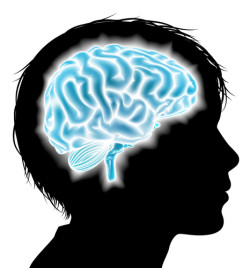Top Class Actions’s website and social media posts use affiliate links. If you make a purchase using such links, we may receive a commission, but it will not result in any additional charges to you. Please review our Affiliate Link Disclosure for more information.

Cerebral atrophy can affect individuals at any age, and can be present from birth, or can be acquired. It can cause global dysfunction or impairment in a certain area only.
Cerebral Atrophy Symptoms
Cerebral atrophy symptoms vary depending on what part of the brain is affected. Cerebral atrophy can be generalized and affect the brain as a whole, or it can be localized to a specific part of the brain, a condition referred to as focal cerebral atrophy.
Generalized cerebral atrophy typically causes memory impairment, seizure activity, poor or absent motor control, difficulty speaking, inability to perform daily activities, inability to speak or read and more.
If the atrophy is localized to a particular part of the brain, as in focal cerebral atrophy, the cerebral atrophy symptoms will reflect just the area of damage while other functioning stays intact.
For example, if the frontal lobe of the brain is affected by focal cerebral atrophy, the individual will experience issues with planning, regulating emotion, critical thinking impairments and difficulty initiating voluntary movements.
Causes of Cerebral Atrophy in Children
A number of diseases can produce cerebral atrophy in children such as cerebral palsy, stroke and AIDS. Diseases that are typically associated with older adults, such as dementia, multiple sclerosis and Huntington’s disease may also be the culprit.
Some lesser known causes of cerebral atrophy in children have also been identified. Children receiving systemic chemotherapy were found to have a reduction in brain volume long after the treatment was completed.
Another study found that depressed parents or grandparents could cause cerebral atrophy in the right hemisphere of the brain that processes emotion in children.
Cushing’s Syndrome is a condition that has also been linked to cerebral atrophy. This disease is a rare hormonal disorder that causes the body to be continually exposed to the stress hormone cortisol.
Dilantin and Cerebral Atrophy
Another source of cerebral atrophy that parents may be unaware of is the use of Dilantin its link to the condition.
Dilantin (phenytoin) is an anticonvulsant drug used to treat seizures in children and adults. It has also been used off-label to treat a variety of conditions such as anxiety, depression, eating disorders, restless leg syndrome, ADHD, Tourette’s syndrome and more.
Dilantin has been shown to be linked with the development of cerebellar atrophy, a focal cerebral atrophy that affect the cerebellum in the brain.
The cerebellum is responsible for movement, so when it is affected by atrophy, issues with movement and coordination are affected.
An article was published in the Indian Journal of Pharmacology in the Nov-Dec issue in 2013 that demonstrated that a 16 year-old boy diagnosed with epilepsy who was thought to have a viral infection actually was suffering from cerebral atrophy.
The boy had taken Dilantin for 10 years to control his seizures and after being discharged from the hospital for the viral infection, he returned for an evaluation after having difficulty walking.
The results of the examination showed that the boy suffered from nystagmus (involuntary eye movements) and ataxia (difficulty coordinating movements). His MRI revealed focal cerebral atrophy of the cerebellum.
The boy was withdrawn from the drug and was placed on another drug to control his seizures and began a steady recovery. It is suspected that the dose over a long period of use may have built up in his bloodstream, leading to the issue.
To avoid toxicity issues, the researchers suggested that blood plasma levels be accurately monitored to avoid such issues in pediatric and adult patients.
Dilantin Cerebral Atrophy Lawsuit Information
If your child has suffered from focal cerebral atrophy of the cerebellum following Dilantin use, you may be eligible to take legal action against the manufacturer for failing to warn of such side effects.
A Dilantin attorney can review your case at no charge and can assist you in understanding your legal options.
In general, phenytoin lawsuits are filed individually by each plaintiff and are not class actions.
Do YOU have a legal claim? Fill out the form on this page now for a free, immediate, and confidential case evaluation. The attorneys who work with Top Class Actions will contact you if you qualify to let you know if an individual Dilantin lawsuit or Dilantin class action lawsuit is best for you. Hurry — statutes of limitations may apply.
ATTORNEY ADVERTISING
Top Class Actions is a Proud Member of the American Bar Association
LEGAL INFORMATION IS NOT LEGAL ADVICE
Top Class Actions Legal Statement
©2008 – 2024 Top Class Actions® LLC
Various Trademarks held by their respective owners
This website is not intended for viewing or usage by European Union citizens.
Get Help – It’s Free
Join a Free Dilantin, Phenytoin Cerebral Atrophy Class Action Lawsuit Investigation
If you or a loved one were injured by Dilantin/phenytoin side effects, you may have a legal claim. Fill out the form for a free case evaluation.
An attorney will contact you if you qualify to discuss the details of your potential case.
Please Note: If you want to participate in this investigation, it is imperative that you reply to the law firm if they call or email you. Failing to do so may result in you not getting signed up as a client, if you qualify, or getting you dropped as a client.
Oops! We could not locate your form.












